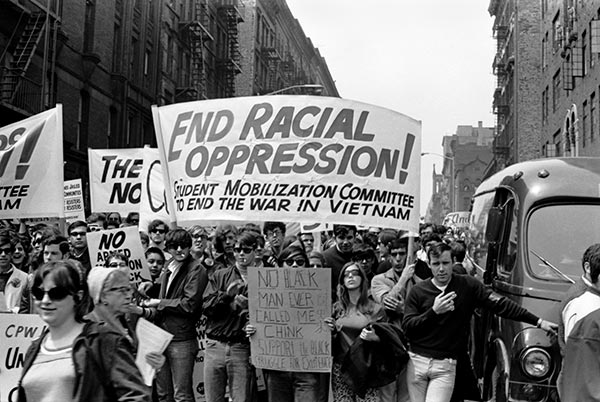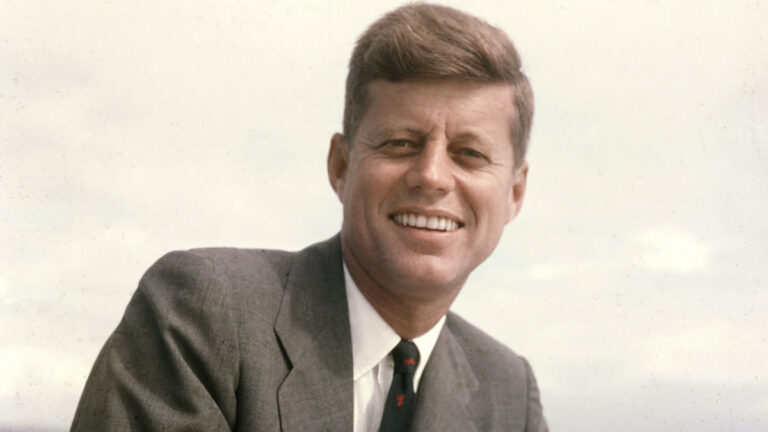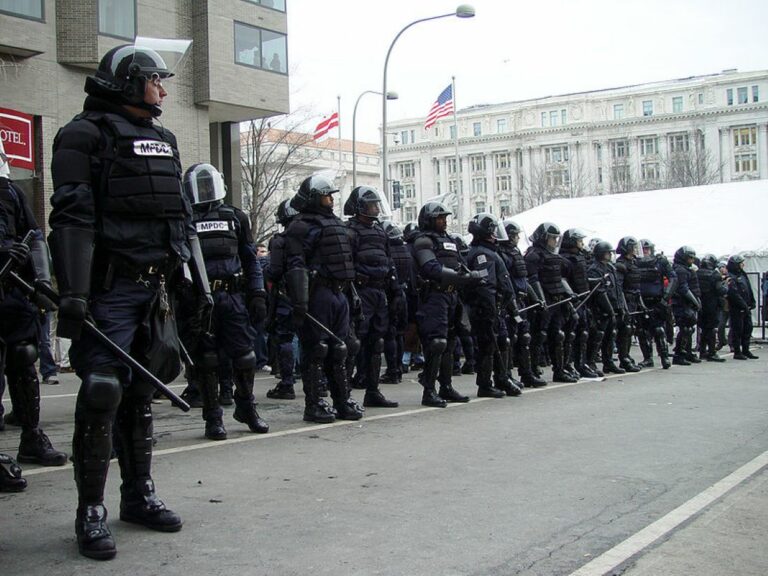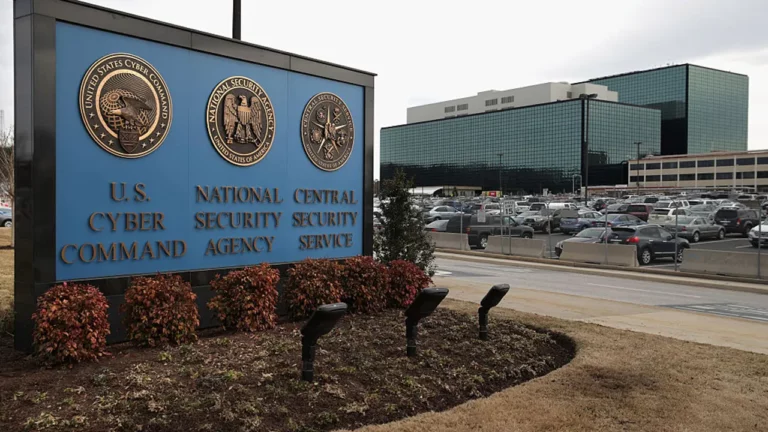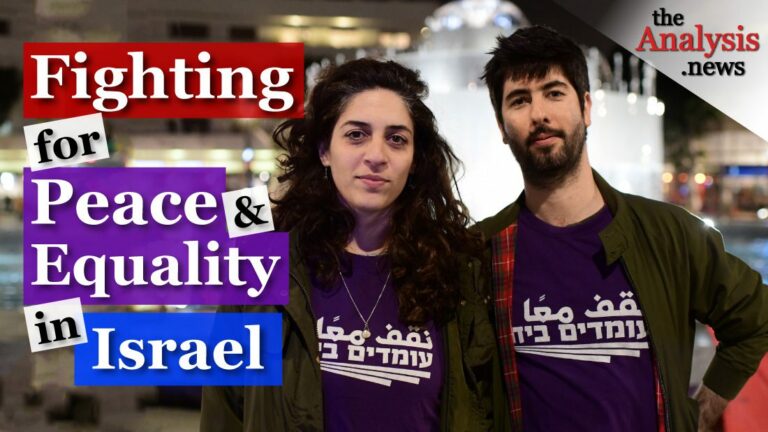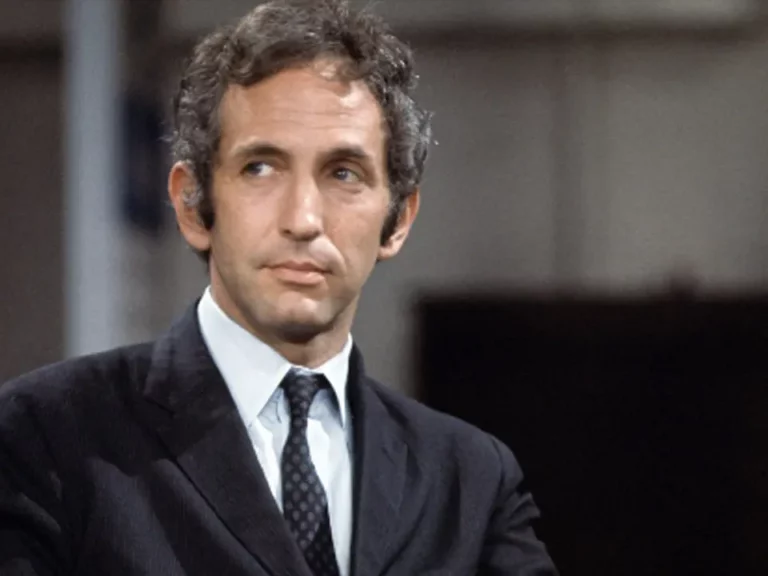“Liberty and Justice for Some People” – James Early on Reality Asserts Itself Pt 1/3
In this series of Reality Asserts Itself with Paul Jay, James Early talks about American identity and growing up African-American facing the deep racism of the South. This is an episode of Reality Asserts Itself, produced November 18, 2013.
STORY TRANSCRIPT
PAUL JAY, SENIOR EDITOR, TRNN: Welcome to The Real News Network. I’m Paul Jay in Baltimore. And welcome to Reality Asserts Itself.
As I’ve said before for people who watch Reality Asserts Itself, sometimes we interview people you know, and sometimes we interview people I think you should know, and that’s–this interview is one of those.
James Early is the director of cultural heritage policy at the Smithsonian Center for Folklife and Cultural Heritage. Prior to his work with the Smithsonian, Mr. Early was an administrator at the National Endowment for Humanities in Washington. He’s been a producer, writer. He was host of Ten Minutes Left, a weekly radio segment of cultural, educational, and political interviews and commentary at Howard University’s radio station.
Thanks for joining us.
JAMES EARLY, DIRECTOR OF CULTURAL STUDIES AND COMMUNICATIONS, SMITHSONIAN INSTITUTION: Thank you.
JAY: So back to you. The reason I wanted to talk to James is James is a political person. He’s very engaged in American politics. He’s very engaged in issues facing African-Americans, both in the United States and in Latin America. He’s been to Cuba, I think–what?–30, 40 times. He’s traveled extensively in Latin America and Venezuela and been very much following and to a large extent part of the transformation that’s been taking place in Latin America.
So I want to talk–and as I do on Reality Asserts Itself, the first segment is usually kind of about who you are and what formed why you think what you think. So let’s talk a little bit about–you know, you are, as I said, a political being. Just about everything you do has some kind of political resonance of some sort. Did you grow up in that kind of household?
EARLY: I did not grow up in any kind of formal politics, elected politics, voting, things of that sort, but I grew up in the days of segregation. And without knowing the terminology, I grew up in era in which you had to negotiate. It was a negotiation of power, which I later came to understand is what policy politics is really about.
JAY: Now, you were born in 1947.
EARLY: I’m born in 1947.
JAY: And where did you grow up?
EARLY: I grew up in Tallahassee, Florida, which is more like South Georgia, which is actually the capital of Florida. But I have a sort of–what I call it an ancestral home ground, which is more or less around Central Florida, Ocala, Florida, which is now known as horse country. And I am told that negroes–which was the term of the period–could only stay in the hospital one evening. So my mother, who was about to give birth 20 miles away in Dunellen, Florida, a very small town of then about 1,800 people, went over, and I was born in the hospital, and then I returned the next day to Dunnellon, Florida, this little scratch place in the woods. We like to say we lived off the hard road, where, you know, you would bulldozer a pathway into the woods and people would build their houses. I grew up in the era of no toilets, of kerosene lamps, of huge mosquitoes as big as hummingbirds, rattlesnakes around.
JAY: Describe your neighborhood.
EARLY: Well, black people living in these little frame houses who would help one another because there was no electricity. Can I send to town today? Would you send your grandson over? There’s a rattlesnake in my yard. And we were in some ways a part of the rustic environment. I mean, here I was a little boy with my ax handle and my piece of rope, and we went barefoot. You know.
JAY: It sounds like you have one foot in post-World War II America and one foot in the 19th century.
EARLY: Well, almost a kind of feudal, rustic, post-slavery kind of environment where you had a few stores that white people ran. And black people worked in agriculture, crops, harvesting crops, or what we call muck mines, busting rocks and turning that–. My mother went to a place called Hard Rock High, which sat right at the foot of one of these mines, where pine tree houses, which were just split, where there was no insulation in these houses, a big iron furnace were you burned would, and my country cousins came from the little hamlets back out in the woods off the hard road.
JAY: And miners. And what else did people do?
EARLY: Oh, they–crops, watermelons, beans, picking watermelons and beans, wrestling crocodiles for white tourists in Ocala, Florida, at Silver Springs away. So it was a really hard segregation, a hard life. Juke joints. I went into juke joints with my uncle, with dirt–.
JAY: A what?
EARLY: A juke joint is a little place where they sold alcohol and had a jukebox. If those people did have electricity, they would hook up to play records. I went in these places where there were dirt floors and hewn bars. Somebody had to split a pine tree down, turn it over, and you put the drinks. And this was Deep Southern living. And heavy race issues. And so as a child I had that impression of negotiating those boundaries.
Okay. Skip forward. I moved to Tallahassee, Florida. My mother was–.
JAY: Don’t skip forward. Back up one sec. How old are you when you leave?
EARLY: Oh, I leave at six years of age, because my mother brings my brother and I to Tallahassee, Florida. She finishes college in three and a half years. She’s working for the head of the negro hospital at FAMU, Florida A&M College, later Florida A&M University. And she’s a very smart woman, but she’s not earning enough money to have her children. She threatens to quit after year. She’s making less than $60 a month. And the guy says, you can’t quit. It is said that this is Al Gore’s cousin, President Gore of the university, a brown skinned man, as we called him, good hair, out of Tennessee–very well could have been the negro cousins of that branch of the Gore family. He said to her, you’ve got to find this woman a house. And she said, I lived in a woman’s dormitory like many educated women who were not making enough money. So they found her a place in parking [‘pUrkINhOn] Village, which was a World War II–.
JAY: Okay. Back up, although I do want to get to how she became such an educated woman living around dirt floors. But before I do that, I’m–you know, most of our viewers know that I grew up in Canada. I’m a dual citizen. But, you know, my national identity, for as much as I have one, is Canadian. I’m intrigued with how people’s national persona gets form. I’m especially intrigued in the United States about American identity and African Americans who identify as Americans, ’cause what is America to you when you grew up in that–dirt floors in Florida? How aware are you, and as you’re six, but even, you know, as you get a little older, what the rest of America is like? Not everybody’s living with dirt floors.
EARLY: Well, in a kind of narrative way, I am very aware. I must’ve been 16, maybe 17 years of age when a great technological invention called the intercom came into the school system. You know, it sounded like cans strung together on a wire. And we would have to go up, our class, go up, and you gave a prayer and you gave information to the day and you did the pledge allegiance to the flag. I was assigned the pledge allegiance to the flag. I was probably 17. We were clowning around. But something came out of my mouth. I don’t know where it came from. I had not planned it. I ended by saying: “liberty and justice for some people.” It caused quite a controversy. My mother had come down to the school. One of the professors says, the boy is just thinking.
In hindsight, there was something literally in the air of a changing American society. I did not have political terminology for it. I did not grow up in the church, so I was not in the civil rights movement when the civil rights movement came to Tallahassee, organized around black churches, to challenge segregation. My little heart was beating. I wanted to be out there. But my mother says, you’re not nonviolent. I lived in the protection of the black university community. But something was going on. I did not get half the terminology.
It was later when I went off to Morehouse College to really jump in, in 1965, and Howard Zinn was teaching in the Atlanta University Center, and I saw these Jewish white radicals out in front of the library against the war, that my political consciousness started to pop. I met people like Bernice Johnson Reagon, the founder of Sweet Honey in the Rock who was one of the original freedom singers of the student nonviolent coordinating committee. I ran into Rap Brown and Stokely Carmichael and other people. I met Vincent Harding, who founded the Institute of the Black World [incompr.] that he wrote the Vietnam speech, a black Mennonite who had come to work with Dr. King. Then I started to find political terminology. I finally met Harry Haywood, who brought the national “Negro Question” back from the 1928 Comintern, the Communist International, that the negro people were a nation. So I began to find indexing for these feelings, these sort of–this narrative consciousness I had.
JAY: So backup. You said racism was heavy where you grew up. When and how do you encounter that? How much does that start to become who you are in reaction to that?
EARLY: Oh, as a kid, six, seven years going, walking to town, walking three, four miles to town, six miles or so round trip, with my grandmother in the hot sun to go into the bank and hear a young white kid basically say, Lizzie, what you here for? Or when she would send me to town, oh, your Lizzie’s grandboy, because she worked for white people. So did my mother, cleaning their houses, keeping their children, my mother getting a dollar a week. And I could feel that negotiation. I did not have an emotion, per se, about it. As I got a little older, I began to see what the divide was. How can you call my grandmother Lizzie and you’re younger than I am?
JAY: What does that mean, to call someone Lizzie?
EARLY: It means that she is not being respected. You know, here is a negro women, an upstanding women in her church, upstanding woman in her community called Mrs. Hampton. But she goes into a white environment and she’s called by her first name.
Now, when I go off to the capital city and I come back every holiday, over the years I began to see that a lot of the kids my age, when they dealt with white people, looked down. I was in a protected black community where we learned to look each other in the eye. I tell young people today, your power is in your eyes, something I picked up. But I could feel that negotiation, that divide going on.
JAY: Now, how did your mother get so educated? And how educated was your father?
EARLY: My mother was a very smart young woman, four-feet-eleven, still about 99 pounds, got a partial scholarship to go to [swElm@n] College but didn’t have the money to pay the result and went to Florida Normal College in St. Augustine, Florida, through the church. So smart. She finishes in three and a half years.
She meets my father in the process, a handsome red guy out of South Carolina living in St. Augustine, Florida, where Florida Normal was located. And he’s 15 years older than she is. They marry, have two kids. And they’re separated by the time I’m four or five years old, divorced and I’m 11. I can remember my father hitting my mother. But she never said an angry word, and at ninety years of age still has not said an angry word about him. When I began to ask about him at 11, this–started feeling that I needed a father figure, she put me on a bus and I would go back and forth the three-hour ride to St. Augustine, Florida, from Tallahassee. I had an uncle there.
And so I built a relationship with my father, a functional alcoholic who owned a pressing club. He was an enterprising man. He always had little business. Bought land right outside of the jurisdiction area and had a little candy store. But I thought the world beat him down. But he was always functional. And I’m really fortunate that when I began to have children and raised them, I brought them around so that they could see the humanity that I had come out of and how I had negotiated the social relationship.
So they were not political people. But I picked up that political germ, if you will, of the time.
JAY: I was about to say, you grow up in what becomes a very political era.
EARLY: Yes. I can remember John Kennedy and Nixon debating. I’m thinking, these two white boys–that’s the way I saw it, in racial term, which in hindsight was probably the first cultural war that I ever saw, Catholic and Protestant. It meant absolutely nothing to me because I saw race. But, of course, that was a fissure in the country. The Vietnam war going on, kids are saying, well, you’re going to college, you’re going to join the military, you know, they’ve got this war. Then I began to think and a militancy began to emerge in me and has never left. And I’ve tried to refine it over the years. I’ve tried to temper it from its adventurism, sometimes, or it’s a steep anger, but I come [crosstalk]
JAY: I was actually about to say, I’ve talked and interviewed other people who have somewhat similar histories as you do, and there seems to be a deeper anger in those people. I don’t get this deeper anger from you.
EARLY: I think I have learned to balance. Oh, it’s there. I have a really, really deep anger about issues of race. A began to develop one about class. And as I have matured and overcome my homophobia, or at least sufficiently overcome by homophobia–I have it about any injustice done to anyone. When I saw what happened in the civil rights movement, the unleashing of dogs on people whom I did not know personally, but I knew that type because I had come out of the country. Every holiday, my little mother–really physically a little woman–these two rambunctious boys going very [incompr.] would send us back to the country. So we spent–until I was 16, 17, 18 years old, I was there three, four times a year. My great-grandmother lived in a log cabin with cardboard for insulation, with soda water tops as [dZoIs@z] to hold the cardboard on with a smokehouse, big fat rats and hams hanging and growing things. You probably couldn’t put $25 together of the seven or eight people who lived out there, but no one starved. And so I saw those images. A saw that humanity. Those were my relatives. And then I was a kid coming from the capital city. So I was treated a little different. And plus my mother had been this really precious light-complexioned woman. I’m not sure where that comes from. Her father was a tailor. There are no images of him. But my grandmother was a black-skinned woman, and I look very much like my brown-skinned uncle, but of a different father. So my sensibilities were always there, again, in narrative form. And then I began to index them them with categories.
JAY: So you’re doing the announcement at school. You’re around 17, and you say, “justice for some”, and that creates a kerfuffle. So then what sort of events? Like, Vietnam War, I guess, has not quite started yet. Or is it? Is it the beginnings of it [crosstalk]
EARLY: No, it’s the beginnings of it started. It’s really the civil rights issue. It’s these images of how black people are treated. It is the rape of two black girls at Florida A&M University by white men in Tally, Florida. And that caused–it was like an earthquake. And first of all, what is a rape? I was well into my teens. I’m not even sure I knew what that word–. But it was a deep sense of violation of my community and it was a deep fear and anxiety that–what could happen to me, because this was the days of segregation.
JAY: So what leads you on a somewhat different path? And what I mean by that is a lot of people that were involved in the civil rights movement kind of took the route of demanding civil rights, but as a sort of reform within society as it was, or, if you want, within capitalism. You kind of took a more radical route.
EARLY: I took a more radical view. And a question that I’ve asked myself and I have answered, I think, sufficiently over the years: I did not grow up in the church. So the church was really the institutional pathway for many people into the civil rights movement. I was old enough to have been one of the young people. There were people in my age group and just a little older who were killed on the way back from Nashville coming back from college who had just finished my high school because they were involved in organized civil rights.
So when I go off to Atlanta, Georgia, this unbelievable town–I’d never been out of the state of Florida–my intellectual, my sense-making interests, those narrative feelings I had began to look for categorical answers. I started to read literature, the stuff that I was assigned, Invisible Man. I started to understand the blues as a genre, not just as music that I would want to stay up late at night and try to get on the radio from Nashville or something coming into Florida. And so I had a utopian kind of view, a purist kind of view that many young people do have. I could understand the civil rights movement as an advance, but I could also still see the contradictions. And young people are often looking for clear definitions–a term I don’t use very much. I like to see things open-ended.
But it was the left movements. It was these things that began to–I met Harry Haywood, who Vincent Harding had brought back from Mexico, where all of these black communists had been exiled, the great Elizabeth Catlett, who died just a few years ago, who was the Dean of Afro-American women painters who had been married to Charles White, who was close to the Communist Party, because it was the Communist Party who was organizing in the South against racism and against lynching. They were very effective at doing that. And so I began to look at these utopian ideas, searching for that.
And the new communist movement comes along, the post-civil rights movement, these well-educated black and Latino and Asian-Pacific–that terminology began to emerge. Lesbian women who–you know, it was something curious that you would hear about. But then you meet real people coming out of these movements. And so that’s where my radicalness sort of took some grounding and my sentiments began to be balanced more. I began to be more measured in the practical implications of these uneasy feelings I had about the power relationships in race and began to identify other kinds of social schisms, which I wanted to stand for.
JAY: Okay. In the next segment of our interview, we’re going to talk about race and class and how that affected James. And we are also going to talk a little bit about the controversy between President Obama and Reverend Wright and the suggestion by President Obama this is sort of a post-racialist society.
So please join us for the next segment of our interview with James Early on Reality Asserts Itself on The Real News Network.
END
Podcast: Play in new window | Download
